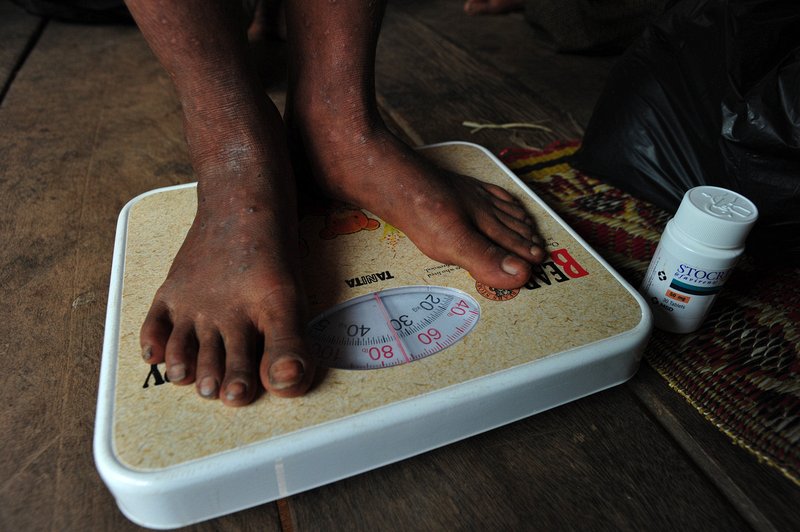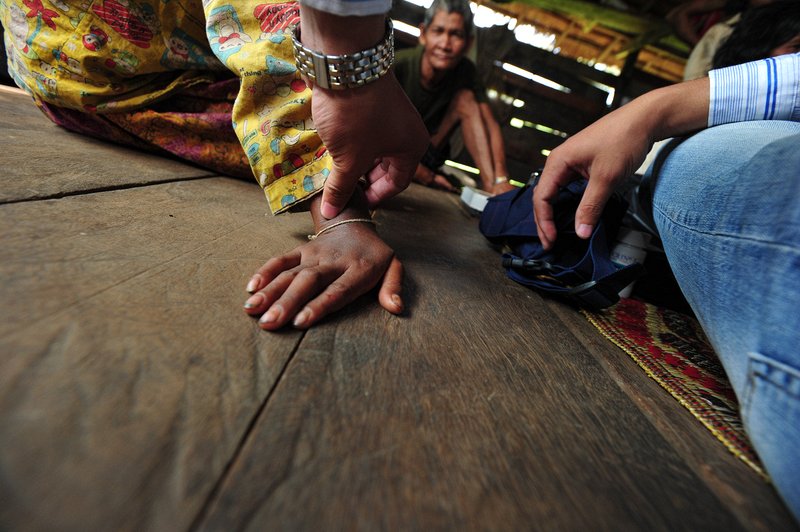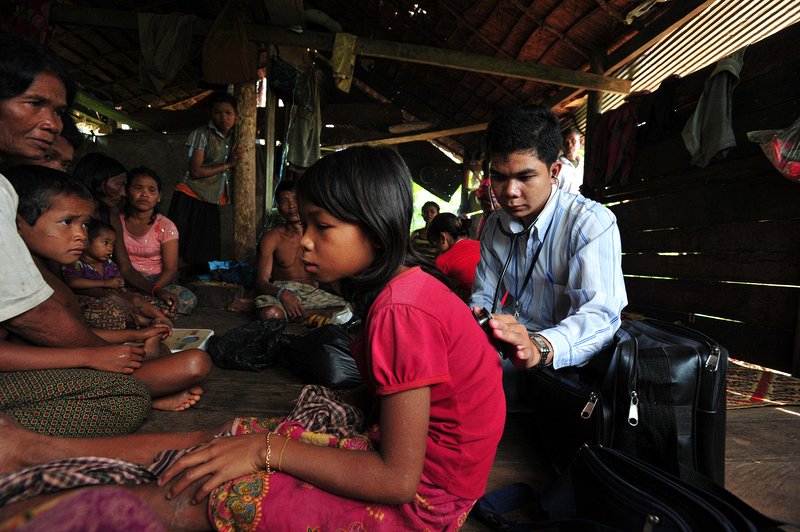Angkor Hospital for Children (AHC) serves as the pediatric department for Siem Reap’s Provincial Hospital, but also treats children from neighboring provinces. Providing outpatient, inpatient, acute, emergency, surgical, low-acuity, dental and ophthalmologic care, AHC has treated almost 500,000 children since 1999.
Currently the outpatient department sees 300-400 children each day and maintains 50 inpatient beds. Patients are asked to pay a nominal fixed fee per visit if they can afford to do so – all treatment and inpatient care is free of charge.
The HIV/Homecare program was conceived in response to the significant number of children living with HIV in Siem Reap, but also serves children with other chronic health conditions and debilitating diseases in rural communities. Not only do the fragile physical conditions of many of these patients make long journeys to AHC all but impossible, so do the harsh economic realities that face their families. The Homecare program provides medical assessmentand treatment, as well as education and counsel. By going directly to these patients, the Homecare team is also able to provide supportbeyond medical treatment, including seeds to grow vegetable gardens, mosquito nets to prevent malaria and dengue fever, and even school uniforms.
Because 70 to 75 percent of Homecare patients are HIV positive, the program works in conjunction with the HIV clinic at AHC, the largest facility in the country outside of Phnom Penh to provide antiretroviral treatment (ART). Beyond administering ART, the clinic works to ensure that patients adhere to protocols to reduce the risk that the virus will develop resistance to the drugs. In 2009, the HIV clinic performed 4,261 consultations for 607 patients, 73 of whom were newly diagnosed; 453 of those patients continued with ART.
Often in Cambodia those living with HIV are marginalized—in some instances children had been expelled from school simply because of their HIV status. To help children and their families cope with stigma, the program developed peer education initiatives for pediatric HIV patients and at-risk families with unknown HIV status. In 2009, five patients received training to teach others about topics including HIV, ART, and diet. The peer education initiative for patients encourages participants to share their experiences with other children while empowering them with knowledge about their own condition. Another group is set to be trained in 2010.
Homecare patients who are not HIV positive suffer from ailments such as malnutrition, neurological pathology, and congenital heart disease; all require ongoing assessment and care. A severe storm hit the region in October, damaging homes and roads and making many of the 275 Homecare patients inaccessible for some time. Despite such challenges, the team managed to carry out 2,702 visits in 2009. The team also made 47 visits to orphanages and schools to provide check-ups and health education for more than 1,100 children, leading to many requests from other regional schools and orphanages for similar outreach in 2010
Children with chronic health conditions such as HIV/AIDS, severe malnutrition and epilepsy require regular medical attention. To save children the often arduous journey to AHC and guarantee the follow-up care they need, AHC provides at-home visits through the Home Care Program



















Hi Karl,
This is Mary Ann, Terry’s wife. I really like your blog
That recent picture of the house with all the slippers outside reminds me of the Phillipines.